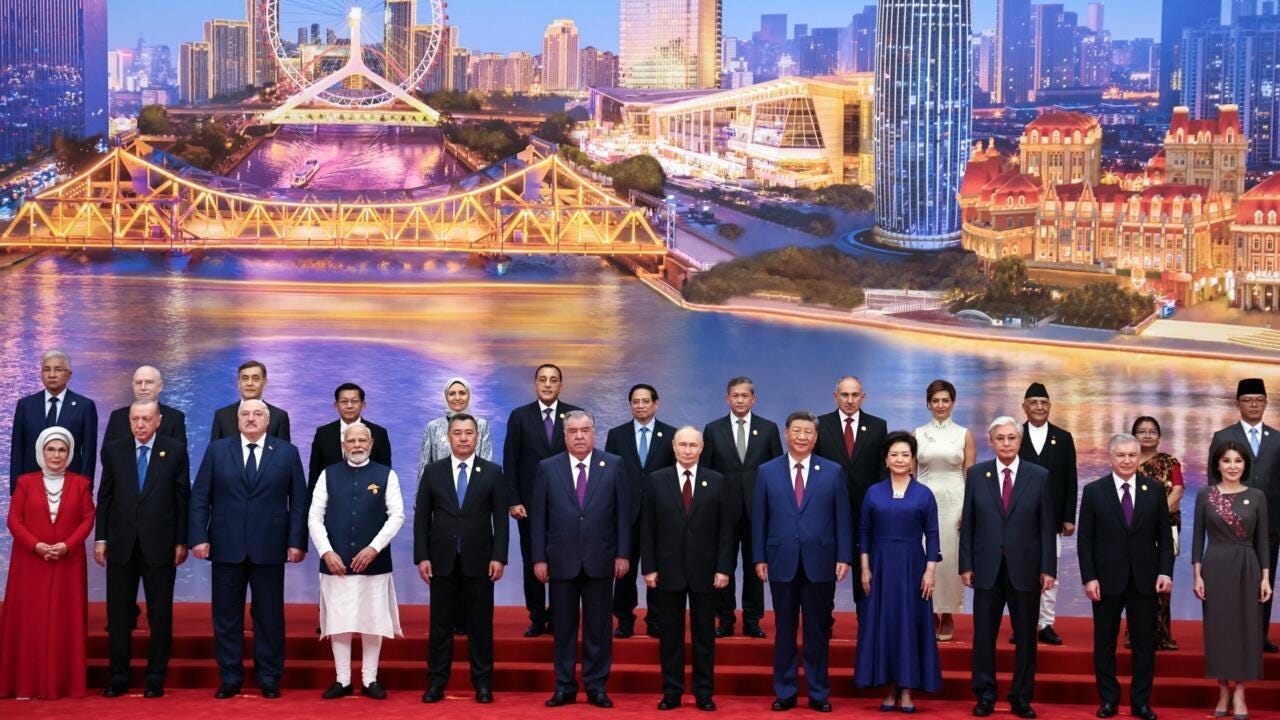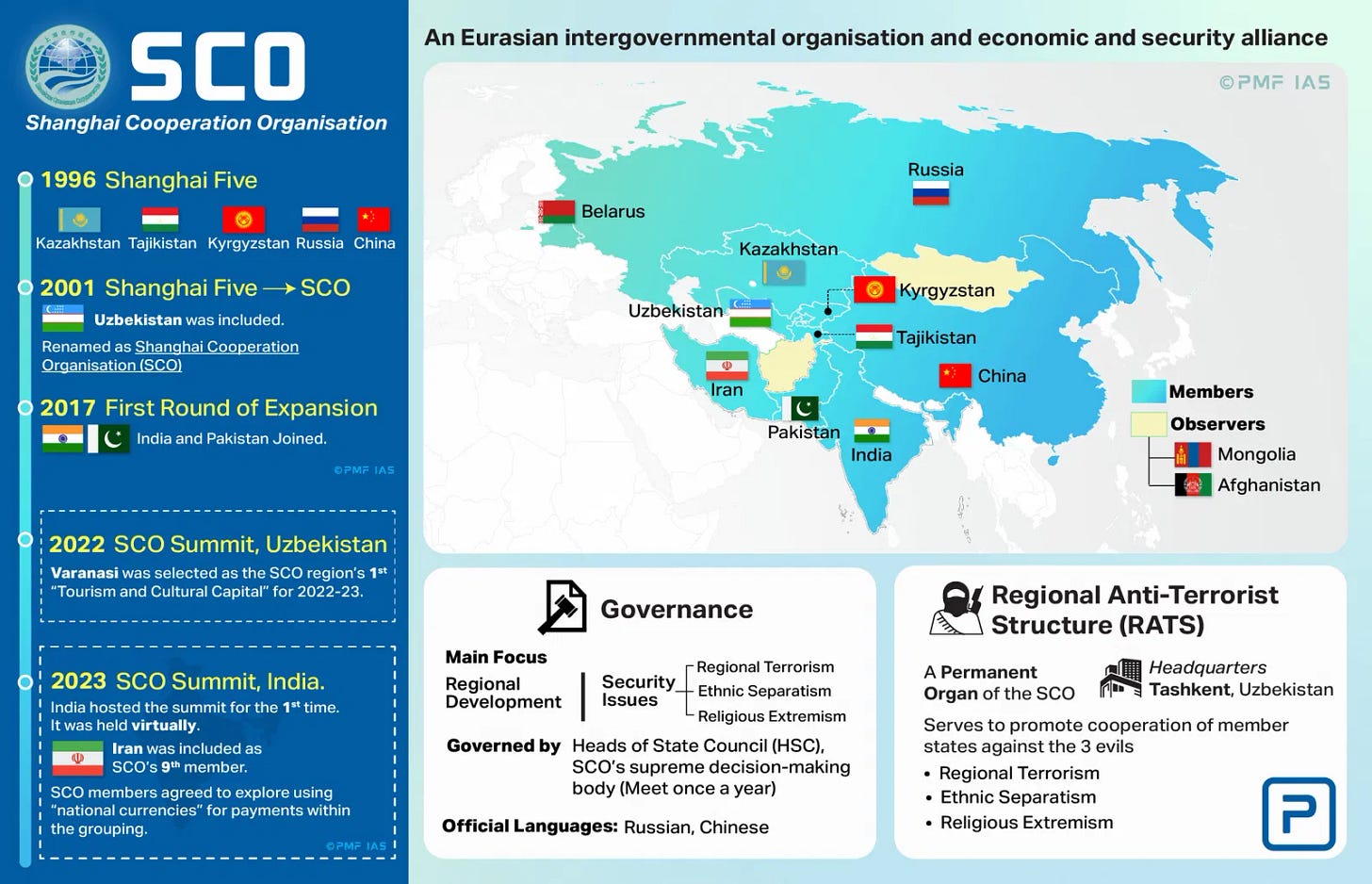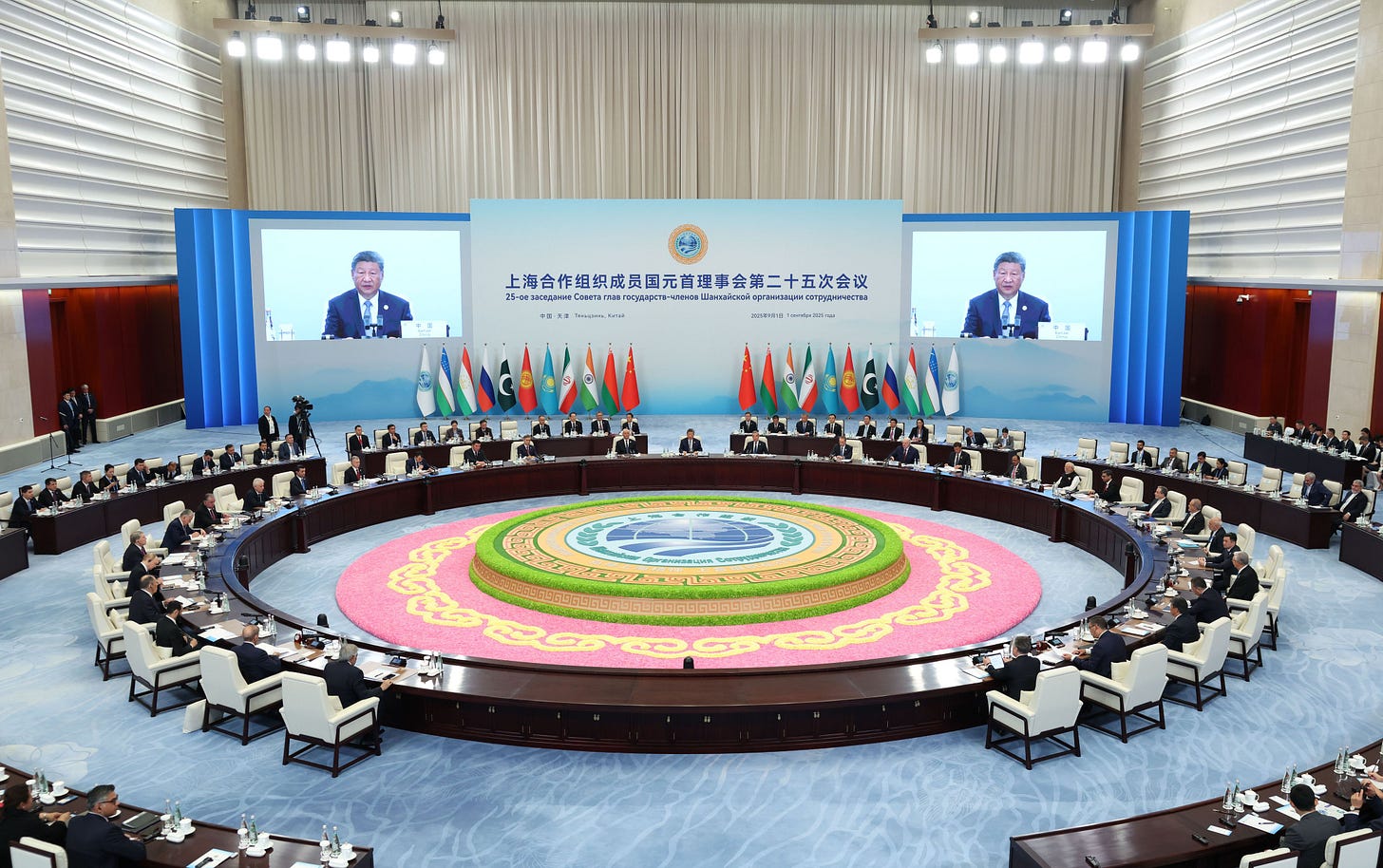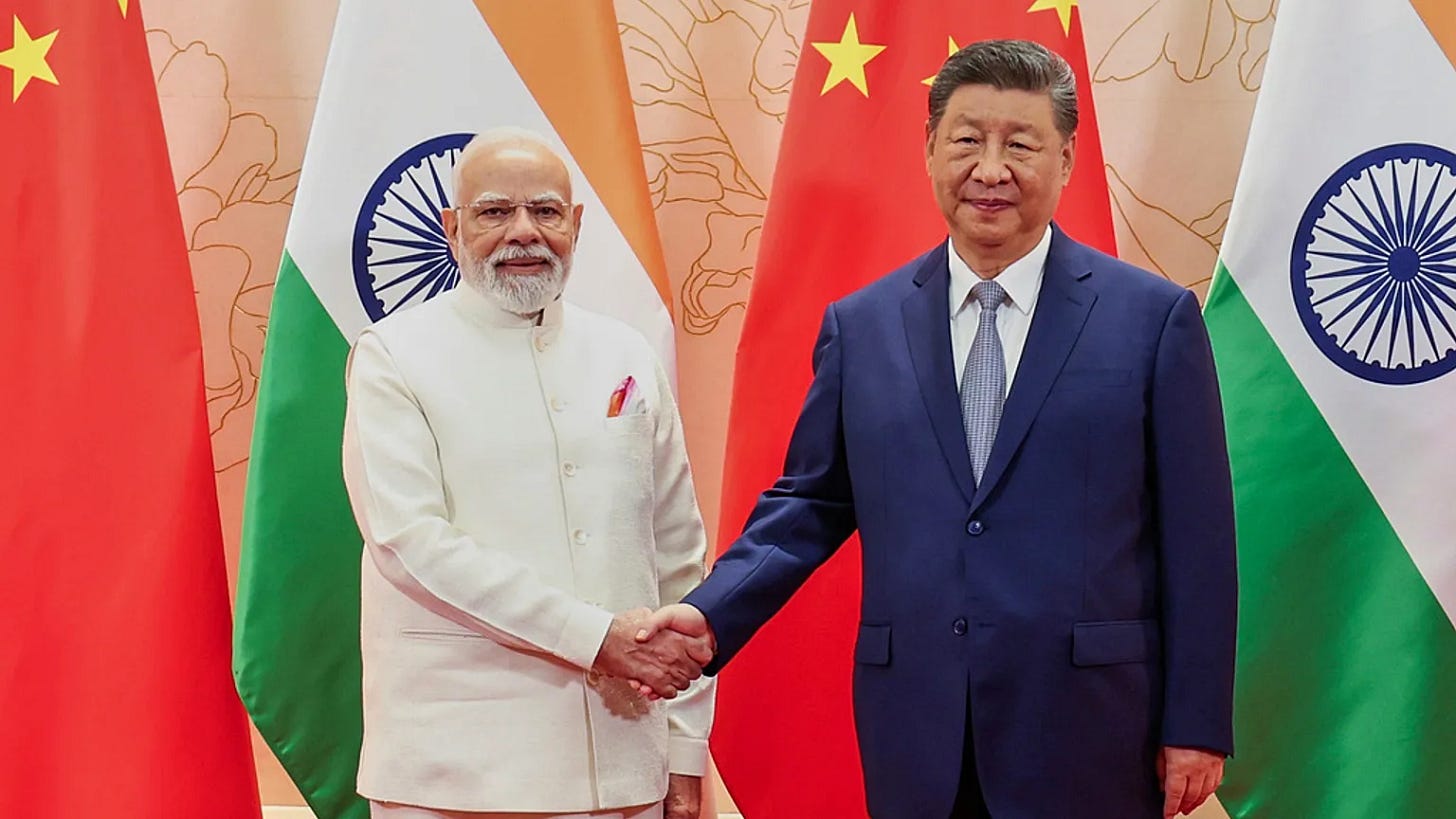A New Chapter in Global Governance: The 2025 SCO Summit and the Rise of Multipolarity
Tianjin wasn't just a host city. It was the stage where a new global script was read aloud — and this time, half the world was in the cast
For the past several days, world leaders — and close observers of global affairs — have had their eyes on Tianjin, China, where the 25th Shanghai Cooperation Organisation (SCO) Summit unfolded with more weight than perhaps any before it. And it’s not just because the numbers were record-breaking (though they were), or because nearly half the world’s population was represented in the room (which it was).
It’s because something deeper, more structural, is taking place.
What we saw in Tianjin was the realignment of global power, not in theory, but in practice. A shift away from the U.S.-dominated post-Cold War order and toward a multipolar world — one where new institutions, new partnerships, and new visions for development, security, and diplomacy are emerging.
A Brief Look Back: From the Shanghai Five to a Global Bloc
The SCO started in 1996 as the Shanghai Five, aimed at resolving border disputes between China, Russia, and Central Asian neighbors. By 2001, it became the Shanghai Cooperation Organisation, adding Uzbekistan. Since then, it’s grown to:
10 full members (including India, Iran, Pakistan, and now Belarus)
2 observer states
14 dialogue partners
Over 30 participating delegations in this year’s summit
It now represents 40% of the global population, 30% of global GDP, and covers 65% of the Eurasian landmass. But more importantly, the SCO isn’t a military alliance like NATO or an economic bloc like ASEAN. It’s a hybrid platform, rooted in non-interference, sovereignty, and mutual development — and it’s fast becoming an alternative pole of global governance.
Tianjin 2025: The Summit That Changed Everything?
This was the largest, most ambitious, and most consequential SCO summit to date. Among the major takeaways:
Tianjin Declaration adopted
SCO Development Strategy 2035 launched
Formal admission of Belarus as the newest full member
Support expressed for Azerbaijan’s future inclusion
Creation of the SCO Development Bank
Establishment of new security institutions for counter-narcotics and counter-extremism
Launch of a program for AI and green industry cooperation
President Xi Jinping’s tone was unapologetically assertive. Xi said,
“The SCO is an effective force against hegemonism and power politics.”
He called on members to reject Cold War thinking and bloc confrontation — and instead promote a multipolar, cooperative, and just global order.
The Dragon and the Elephant: China–India Thaw?
One of the most talked-about moments was the one-on-one meeting between Xi Jinping and Indian PM Narendra Modi. This was Modi’s first trip to China since 2018, and came shortly after the U.S. hit India with new tariffs in response to its energy trade with Russia.
Xi emphasized, “The dragon and the elephant can dance together.”
Symbolic? Yes. But also strategic. China offered rare earth minerals to India. India, in turn, signaled its growing interest in a more autonomous foreign policy — no longer content to be pulled solely into Washington’s orbit.
I discussed the thaw in India-China relations and the reasons behind it in these two recent videos on the World Affairs in Context Youtube channel:
The Start of CHINA-INDIA Power Bloc - The Strategic Realignment, Explained
India's Bold Pivot to China: The U.S. Is LOSING ITS GRIP as India Is Reshuffling Global Alliances
The Global South Finds Its Voice
With participation from nations like Turkey, Indonesia, Egypt, and Mongolia, the summit revealed something larger: the SCO is becoming a platform for the Global South. What unites these nations? Many of them seek economic development without Western strings attached, and they are frustrated with unilateral sanctions and dollar dependence. Additionally, these nations are looking for regional institutions that reflect their priorities, not just the interests of G7 economies.







